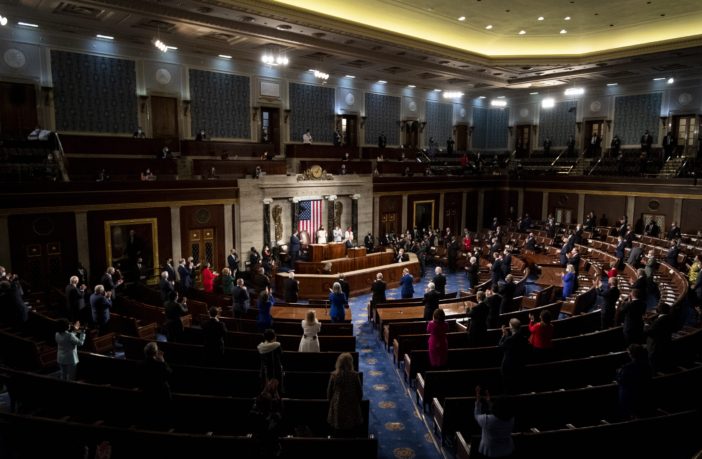By Stacy M. Brown,
NNPA Newswire
As Congress reconvenes this week, the nation watches in anticipation of what America’s future holds while bracing for an intense battle of political wills, all while former President Donald Trump’s legal entanglements loom over the legislative process.
The critical issue is the passage of a short-term spending bill to stave off a looming government shutdown scheduled for Oct. 1. The high-stakes standoff sets the stage for an unpredictable showdown between conservative hardliners and those who seek a more pragmatic path
House Speaker Kevin McCarthy, caught in the crossfire of a political maelstrom, finds himself in a most precarious position. According to CNN, during a private conference call last week, McCarthy urged his colleagues to support a short-term spending deal to avert an impending shutdown. He proposed postponing the larger funding fight until later in the fall, a strategy that some view as prudent to ensure the government continues to function.
The House and Senate face substantial differences in their funding proposals, with McCarthy’s prior deal with the White House crumbling under the pressure of demands from the conservative wing of his party. As a result, the two chambers are hundreds of billions of dollars apart, increasing the urgency to find a compromise.
To further complicate matters, Congress must tackle other pressing end-of-the-month deadlines, including extending federal aviation programs and potentially initiating an absurd, nasty and vindictive impeachment inquiry against President Joe Biden in the House.
The White House and senators from both sides of the aisle advocate tying the short-term funding bill to critical provisions such as $24 billion in aid to Ukraine and an additional $16 billion for communities devastated by natural disasters. However, a vocal faction of House conservatives opposes swiftly passing additional aid to Ukraine.
The procedural hurdle of securing a rule vote in the House adds another layer of complexity. Some hard-right conservatives have declared their willingness to block the rule vote for the spending bill if their demands are not met.
All of this leaves McCarthy at a crossroads. He must decide whether to align with conservative hardliners, risk a head-on collision with the White House, or forge a compromise with Democrats, passing the spending bill by a two-thirds majority. The latter option could force McCarthy to make concessions to Democrats, jeopardizing his standing among his party’s far-right members and the possibility of his being removed as Speaker. The vociferous if not powerful MAGA wing has continued their defense of Trump, the four-times indicted, twice impeached, former president whom a civil jury also concluded sexually assaulted a writer. They are seeking to use as leverage anything they believe could potentially halt Trump’s prosecutions.
However, GOP Rep. Mike Simpson (R-ID-2), who chairs one of the appropriations subcommittees, acknowledged the need for Democratic support in short-term and longer-term funding bills. He warned that McCarthy may find himself in a precarious situation as compromise becomes the order of the day in Washington.
“The challenge for McCarthy, and I’ll be real honest with you, is that if he works with the Democrats, obviously, the Democrats are not going to do it for free. They want something. So, it’s going to be a compromise – one of those really bad words in Washington for some reason,” Simpson told CNN. “Then you’re going to find a resolution introduced on the floor to vacate the chair.”
While the short-term funding crisis dominates the current congressional agenda, the House will also consider its homeland spending bill, offering conservatives a fresh opportunity to influence their party’s border policy.
Meanwhile, Democrats are already positioning themselves to pin any potential government shutdown squarely on the House GOP. Senate Majority Leader Chuck Schumer (D-NY) emphasized their focus on funding the government and preventing what he called “House Republican extremists” from causing a shutdown when the Senate returns next week.
This article was originally published by the NNPA.



